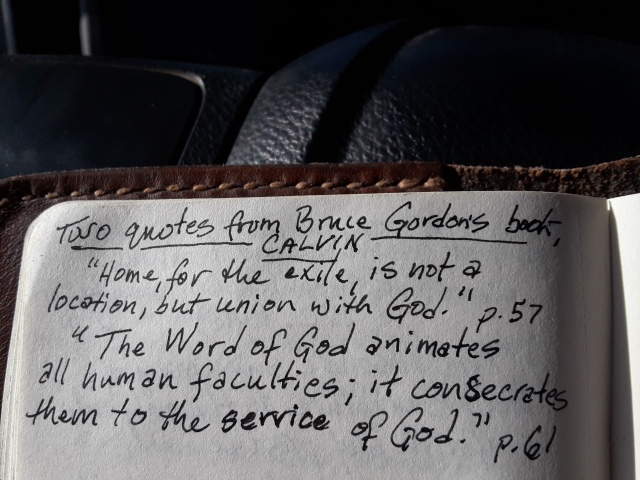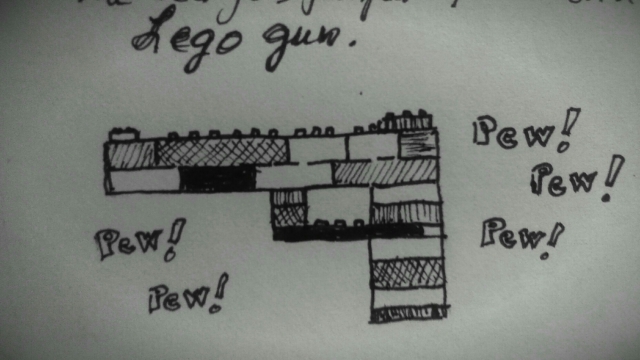
“Home, for the exile, is not a location, but union with God.”
– Bruce Gordon, Calvin, p. 57
First, I want to apologize. I am a truck driver, not a scholar. When it comes to John Calvin or countless other topics, I’m just a guy interested in learning about things outside my normal scope. I’m not an authoritative historian or even as well-read as I’d like to be. To attempt to remedy that last part, I have been trying to finish a newer biography about the French reformer by Bruce Gordon for a little more than a year. Contrary to what might be deduced from my mind-numbingly slow pace, Gordon’s book is actually quite an easy read. There’s plenty of sixteenth century European history that gives better perspective of the world in which Calvin lived.

I am well aware of the division often surrounding this historical figure (if anything, this is primarily what most lay people who are interested in Church history know of Calvin, and that is a shame). It’s unfortunate, in my opinion, that in circles I’m more familiar with due to my own cultural background, the name John Calvin is usually filtered through the lens of a Jack Chick tract. In that context, one tends to get an idea of something like a raging despot, screaming about God’s sovereignty, kicking puppies, and unilaterally sending poor Genevans to the same fate as the anti-Trinitarian Michael Servetus. In short, rubbish.
If there is anything, in my present limited scope, that I find noteworthy about this Frenchman is the passion he had for who God is and his word. At a time when tradition and papal authority were treated as though they were on par with (or greater than) the Bible, Calvin stood with those other men and women of the Reformation who believed, taught, and remained unmoved on one of the basic principles found in the apostle Paul’s writings, namely, that, “All Scripture is breathed out by God and profitable for teaching, for reproof, for correction, and for training in righteousness” (2 Timothy 3:16, ESV). Something simplified under the Five Solas as sola scriptura, or scripture alone.
Another thing of note about Calvin is the concept of exile. Exile was nothing alien to him; he was an exile from his native France most of his adult life. What I find heartening is the encouragement he sought to bring other Christians who had to flee their homelands, as he had, because of their faith. I’m not halfway finished with Bruce Gordon’s book(I know, so slow!), but it seems that at least part of the reasons why Calvin began writing his famous Institutes of the Christian Religion was in order to, by way of explanation of scripture and doctrine found therein, encourage others facing persecution and exile.
The idea of exile runs through the pages of God’s word. We were strangers but God drew us to himself. Separated from him by our sin in Adam, he brought us back under the work of Christ. Strangers to God no more; strangers only to this world as the old American spiritual goes, “this world is not my home, and I’m just passing through.”







